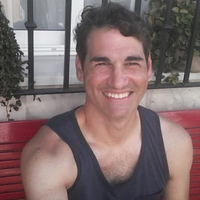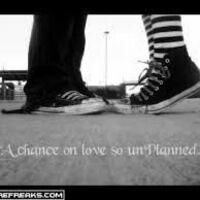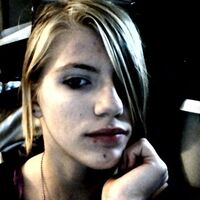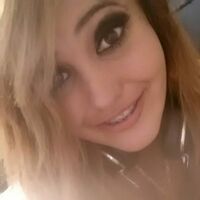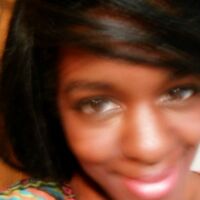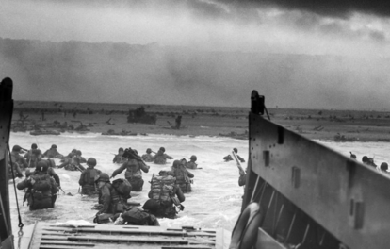
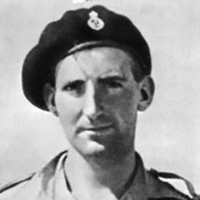
Keith Castellain Douglas (24 January 1920– 9 June 1944) was an English poet noted for his war poetry during the Second World War and his wry memoir of the Western Desert campaign, Alamein to Zem Zem. He was killed in action during the invasion of Normandy. Poetry Douglas described his poetic style as “extrospective”; that is, he focused on external impressions rather than inner emotions. The result is a poetry which, according to his detractors, can be callous in the midst of war’s atrocities. For others, Douglas’s work is powerful and unsettling because its exact descriptions eschew egotism and shift the burden of emotion from the poet to the reader. His best poetry is generally considered to rank alongside the 20th century’s finest soldier-poetry. In his poem, “Desert Flowers” (1943), Douglas mentions World War I poet Isaac Rosenberg, claiming that he is only repeating what Rosenberg has already written. Early life Douglas was born in Tunbridge Wells, Kent, the son of Capt. Keith Sholto Douglas, MC (retired) and Marie Josephine Castellain. His mother became unwell and collapsed in 1924 of encephalitis lethargica, never to fully recover. By 1926, the chicken farm set up by his father had collapsed. Douglas was sent to a preparatory school (Edgeborough School in Guildford) the same year. The family became increasingly poor, and his father had to leave home in early 1928 to seek better employment in Wales. The persistent ill-health of Marie led to the collapse of the marriage of his parents by the end of that year, and his father remarried in 1930. Douglas was deeply hurt by his father not communicating with him after 1928, and when Capt. Douglas did write at last in 1938, Keith did not agree to meet him. In one of his letters written in 1940 Douglas looked back on his childhood: “I lived alone during the most fluid and formative years of my life, and during that time I lived on my imagination, which was so powerful as to persuade me that the things I imagined would come true.” Education Marie Douglas faced extreme financial distress, so much so that only the generosity of the Edgeborough headmaster Mr. James permitted Douglas to attend school in 1930–1931, his last year there. Douglas sat in 1931 for the entrance examination to Christ’s Hospital, where education was free and there was monetary assistance to cover all other costs. He was accepted, and joined Christ’s Hospital, near Horsham, in September 1931, studying there till 1938. It was at this school that his considerable poetic talent and artistic ability were recognised. So was his cavalier attitude to authority and property, which nearly led to expulsion in 1935 over a purloined training rifle. In surprising contrast, he excelled as a member of the school’s Officers Training Corps, particularly enjoying drill, although he was philosophically opposed to militarism. University After his bruising brush with authority in 1935, Douglas settled down to a less troubled and more productive period at school, during which he excelled both at studies and games, and at the end of which he won an open exhibition to Merton College, Oxford in 1938 to read History and English. The First World War-veteran and well-known poet Edmund Blunden was his tutor at Merton, and regarded his poetic talent highly. Blunden sent his poems to T. S. Eliot, the doyen of English poetry, who found Douglas’s verses 'impressive’. Douglas became the editor of Cherwell, and one of the poets anthologised in the collection Eight Oxford Poets (1941), although by the time that volume appeared he was already in the army. He does not seem to have been acquainted with somewhat junior but contemporary Oxford poets such as Sidney Keyes, Drummond Allison, John Heath-Stubbs and Philip Larkin, who would make names for themselves. At Oxford, Douglas entered a relationship with a sophisticated Chinese student named Yingcheng, or Betty Sze, the daughter of a diplomat. Her own sentiments towards him were less intense, and she refused to marry him. Yingcheng remained the unrequited love of Douglas’s life and the source of his best romantic verse, despite his involvements with other women later, most notably Milena Guiterrez Penya. Military service Within days of the declaration of war he reported to an army recruiting centre with the intention of joining a cavalry regiment, but like many others keen to serve he had to wait, and it was not until July 1940 that he started his training. On 1 February 1941 he passed out from the Royal Military College, Sandhurst, the British Army training academy for officers, and was commissioned into the 2nd Derbyshire Yeomanry at Ripon. He was posted to the Middle East in July 1941 and transferred to the Nottinghamshire (Sherwood Rangers) Yeomanry. Posted initially at Cairo and Palestine, he found himself stuck at Headquarters twenty miles behind El Alamein as a camouflage officer as the Second Battle of El Alamein began. At dawn on 24 October 1942, the Regiment advanced, and suffered numerous casualties from enemy anti-tank guns. Chafing at inactivity, Douglas took off against orders on 27 October, drove to the Regimental HQ in a truck, and reported to the C.O., Colonel E. O. Kellett, lying that he had been instructed to go to the front (luckily this escapade did not land him in serious trouble; in a reprise of 1935, Douglas got off with an apology). Desperately needing officer replacements, the Colonel posted him to A Squadron, and gave him the opportunity to take part as a fighting tanker in the Eighth Army’s victorious sweep through North Africa vividly recounted in his memoir Alamein to Zem Zem, illustrated with his own drawings. Death Captain Douglas returned from North Africa to England in December 1943 and took part in the D-Day invasion of Normandy on 6 June 1944. He was killed by enemy mortar fire on 9 June, while his regiment was advancing from Bayeux. Captain Leslie Skinner (regimental chaplain) buried him by a hedge, close to where he had died on "forward slopes point 102". Shortly after the war his remains were reburied at Tilly-sur-Seulles War Cemetery (14 km south of Bayeux) in plot 1, row E, grave number 2. Bibliography * Selected Poems (Keith Douglas, J.C. Hall, Norman Nicholson) (1943) * Alamein to Zem Zem (1946), reprinted 1966 * Collected Poems (Editions Poetry London 1951), reprinted 1966 * Selected Poems (Faber 1964) * The Complete Poems (Faber & Faber 1978), reprinted in 1987, 1997, 2011 * Alldritt, Keith. Modernism in the Second World War ISBN 0-8204-0865-4 * The Letters of Keith Douglas edited by Desmond Graham (Carcanet Press, 2000) ISBN 978 1 857544 77 0 Biography * Keith Douglas, 1920–1944 by Desmond Graham (OUP, 1974) ISBN 0-19-211716-5 References Wikipedia—https://en.wikipedia.org/wiki/Keith_Douglas
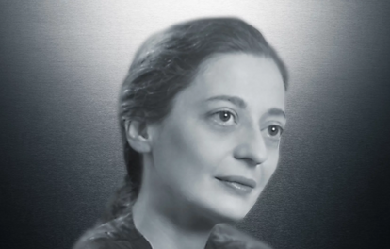
Helen Joy Davidman (18 April 1915 – 13 July 1960) was an American poet and writer. Often referred to as a child prodigy, she earned a master's degree from Columbia University in English literature at age twenty in 1935. For her book of poems, Letter to a Comrade, she won the Yale Series of Younger Poets Competition in 1938 and the Russell Loines Award for Poetry in 1939. She was the author of several books, including two novels.
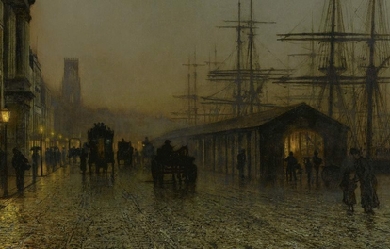
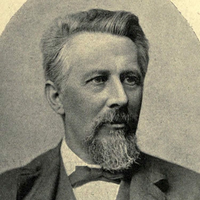
Edward Dowden (/ˈdaʊdən/; 3 May 1843– 4 April 1913), was an Irish critic and poet. Biography He was the son of John Wheeler Dowden, a merchant and landowner, and was born at Cork, three years after his brother John, who became Bishop of Edinburgh in 1886. Edward’s literary tastes emerged early, in a series of essays written at the age of twelve. His home education continued at Queen’s College, Cork and at Trinity College, Dublin; at the latter he had a distinguished career, becoming president of the Philosophical Society, and winning the vice-chancellor’s prize for English verse and prose, and the first senior moderatorship in ethics and logic. In 1867 he was elected professor of oratory and English literature in Dublin University. Dowden’s first book, Shakespeare, his Mind and Art (1875), resulted from a revision of a course of lectures, and made him widely known as a critic: translations appeared in German and Russian; his Poems (1876) went into a second edition. His Shakespeare Primer (1877) was translated into Italian and German. In 1878 the Royal Irish Academy awarded him the Cunningham gold medal “for his literary writings, especially in the field of Shakespearian criticism.” Later works by him in this field included an edition of The Sonnets of William Shakespeare (1881), Passionate Pilgrim (1883), Introduction to Shakespeare (1893), Hamlet (1899), Romeo and Juliet (1900), Cymbeline (1903), and an article entitled “Shakespeare as a Man of Science” (in the National Review, July 1902), which criticized T.E. Webb’s Mystery of William Shakespeare. His critical essays “Studies in Literature” (1878), “Transcripts and Studies” (1888), “New Studies in Literature” (1895) showed a profound knowledge of the currents and tendencies of thought in various ages and countries; but his Life of Shelley (1886) made him best known to the public at large. In 1900 he edited an edition of Shelley’s works. Other books by him which indicate his interests in literature include: Robert Southey (in the “English Men of Letters” series, 1880), his edition of Southey’s Correspondence with Caroline Bowles (1881), and Select Poems of Southey (1895), his Correspondence of Sir Henry Taylor (1888), his edition of Wordsworth’s Poetical Works (1892) and of his Lyrical Ballads (1890), his French Revolution and English Literature (1897; lectures given at Princeton University in 1896), History of French Literature (1897), Puritan and Anglican (1900), Robert Browning (1904) and Michel de Montaigne (1905). His devotion to Goethe led to his succeeding Max Müller in 1888 as president of the English Goethe Society. In 1889 he gave the first annual Taylorian Lecture at the University of Oxford, and from 1892 to 1896 served as Clark lecturer at Trinity College, Cambridge. To his research are due, among other matters of literary interest, the first account of Thomas Carlyle’s Lectures on periods of European culture; the identification of Shelley as the author of a review (in The Critical Review of December 1814) of a lost romance by James Hogg; a description of Shelley’s Philosophical View of Reform; a manuscript diary of Fabre d’Églantine; and a record by Dr Wilhelm Weissenborn of Goethe’s last days and death. He also discovered a Narrative of a Prisoner of War under Napoleon (published in Blackwood’s Magazine), an unknown pamphlet by Bishop Berkeley, some unpublished writings of William Hayley relating to Cowper, and a unique copy of the Tales of Terror. His wide interests and scholarly methods made his influence on criticism both sound and stimulating, and his own ideals are well described in his essay on The Interpretation of Literature in his Transcripts and Studies. As commissioner of education in Ireland (1896–1901), trustee of the National Library of Ireland, secretary of the Irish Liberal Union and vice-president of the Irish Unionist Alliance, he enforced his view that literature should not be divorced from practical life. His biographical/critical concepts, particularly in connection with Shakespeare, are played with by Stephen Dedalus in the library chapter of James Joyce’s Ulysses. Leslie Fiedler was to play with them again in The Stranger in Shakespeare. Dowden married twice, first (1866) Mary Clerke, and secondly (1895) Elizabeth Dickinson West, daughter of the dean of St Patrick’s. His daughter by his first wife, Hester Dowden, was a well-known spiritualist medium. References Wikipedia—https://en.wikipedia.org/wiki/Edward_Dowden
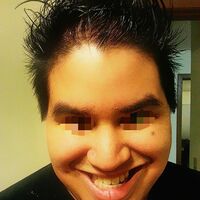
My name is Dagger AKA Adam Koss. I am 26 years old and a professional author. Although I have been writing poetry and books for over 16 years, I have only recently come into my 'creative prime' and mastered the art. I need my audience to understand that I DO NOT write what people consider to be "normal" material! I am an artist who describes the world around me and the life I live in perfect detail with graphic realism. I have been known to use flagrant vulgarity, sexually explicit language, raw facts, and violent imagery to form most of my writings if I feel it will provide emphasis. In NO way, shape, or form do I promote violence, abuse, pedophilia, rape, racism, crime, or hate but as an author I bring light to these issues in a "worse-case-scenario" form, showing the reality of human's choices and how these issues can have drastic consequences if allowed to play out. I will allow you to decide for yourself, but know that I DO NOT sugar coat anything and only speak on the taboo topics that most people never dare to bring into the light. I use my self-expression and devotion to my art to write what's on my heart and mind and then share it with the world. I believe my form of art is something that ALL teens and young parents need to hear if they can handle the raw reality of this world is such a bold and brash form. We no longer need to have these issues pushed aside and covered up because we are "uncomfortable" discussing them. NO. Someone needs to step up as the voice for a generation that wants to break free from restrictions and step into the realistic freedom that only the truth can provide. The time is now and your leader has heard your cries. So relax because I am listening and willing to acquiesce to your request.

I am a younger writer, I will say I'm 14. I use poetry as an outlet to express my feelings and hopefully help people who are in rough patches of there life. I take criticism very well, I fact I greatly encourage it! I'm looking forward to improve my skill level with the help of all of you!
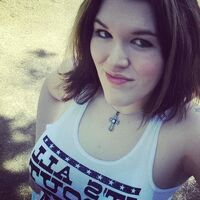
Amber Decker is a poet from West Virginia who has never, despite Hollywood's sorely inaccurate depictions of her Appalachian roots, had sex with any relatives or animals, nor has she ever cannibalized anyone who has taken a...wrong turn. She is a lover of horses, hooded sweatshirts, coffee, dark chocolate, fantasy novels, werewolf movies and red wine. She also spends a ridiculous amount of time at the gym working on her anger management issues. Her latest collection of poems, The Girl Who Left You, is forthcoming from the notorious Six Ft Swells Press. Her website, containing information about new publications and events, is: http://roughverse.wordpress.com
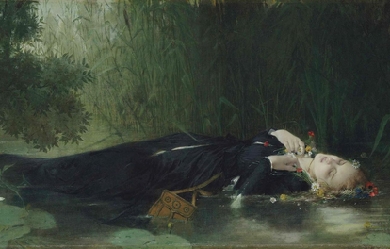
Here, you'll find verses that capture the delicate dance of emotions, from the gentle touch of love to the raw vulnerability of breaking. My poetry is an exploration of the beauty found in the ordinary moments, a celebration of the human spirit, and an invitation for you to see a reflection of your own experiences in these lines. This is not just about my words; it's about the connections we forge through shared emotions. I invite you to join the conversation. Share your thoughts, your stories, and let's create a community where words become bridges between hearts. Thank you for being a part of this poetic journey. Let the verses resonate, the emotions flow, and may you find a piece of yourself within these lines.

From 1997 thru 2008 Linda produced and hosted several poetry readings, open mics, poetry slams, local poetry and arts festivals in southern New Jersey and Philadelphia. She is the founder and co-producer of NoBoarders Poetry Radio on Live 365. Linda says "First and foremost, I am a poet; a writer, daughter, mother, grandmother, sister, friend and wife from a small town in southern New Jersey. She writes of herself I am daughter of the sun and moon student of the earth and sea plants and tree, rock and stone reptile and mammal, fish and bird I am student and teacher of my lessons lived and learned from my ancestors and babes to be born I am shape shifter, twisting to shed this skin entrapper of authentic self within
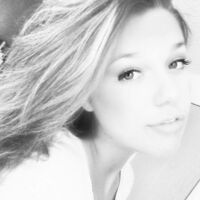
It's good to let out pent up anxiety or feelings.. and that's what I do with poetry besides going out and jogging. Hey, jogging/ exercising is cheaper than therapy!:p Anyways, that last bit was random haha. But welcome to my page. I don't post often.. okay never would be the correct word, but I try and stay in the loop with new poems out from followers and people that I follow.

I've always had a passion for writing stories and poems and them I got to realise I'm quite good at it, my main inspiration is my wiccan pathway, nature and the love of my life, my twin flame, Rev. Shaman Peter John Patrick. I started writing poems for my now ex husband when I lost both parents at an early age but it poetry was a way out for me, I used to lose myself in stories, loseing them although I miss them dearly allowed me to grow up quick, be more independent and strong and find my own way in life. I'm currently a support worker for adults with learning disabilities and love making a difference to others lives. Just recently I have been drawn to the pagan religion WICCA and I have been busy studying and living my life in the way of WICCA. I am on a journey of discovering my higher self and a lot of my inspiration comes from how following this pathway makes me feel, my love of nature and my new way of thinking. It has brought so much beauty to my life. At the moment I just want to help others and show others the new me and as a result of this I am now looking at putting my poem writing skills to the test and to the service of others by writing poems by request for people. You may find me a bit off the wall, un predictable and random, my sense of humour can be a bit dry so never take me seriously unless I'm being serious of course lol. Mad as a box of frogs but those fbrogs are very in touch with their senses, it facinates me to watch people and I can usually sense what that person is all about from just one look and a moment to feel their aura and I find I am usually right but it it never fails to amaze me, I guess we all have to have a few special skills as we are all individual. I'm friendly and down to earth, I am honest but sometimes brutally so and so if your not going to like an answer to something then don't ask the question but that's what makes us stronger, knowing our faults and having the ability to do something about them. I don't bite often by the way so come and say hello, I love hearing others views on things, obviously I have my own opinions but I will not try to force it upon others. I worship nature and celebrate the earth and seek to bring about positive changes in the way I live my life and using my knowledge to help others. For so long now I have always felt like the odd one out in all that I do and that there is something missing and now I have found it. Something that feels like I belong, something that feels like home and suits me in each and every way and I'm never going to look back all I have been through has led me onto this path, all lessons I have learnt so far and here I am, ready to take on life's challenges and lessons, ready to adapt and alter my life so I can finally evolve. I believe we should look after ourselves spiritually and physically, everything we go through we go through for a reason even having a body is lesson alone to see if we can look after these precious valuable vessels or if we just abuse them or let them go to waste. Push out minds, our bodies and our souls to be the very best they can be, I always count my blessings each day and give thanks for all I have, all I am and my memories. Without my memories and influences from people and things during my life I wouldn't be me, I don't believe others can make you who you are but they can certainly influence you and point you in the right direction. Never turn down an opportunity and live for each moment. I believe in treating others how I would want to be treated and if they losethat respect I believe the universe will deal with them in it's own fair way.We are always learning new things, we never stop learning about outselves we spend our time getting to know others but do we really know ourselves but should always be on the search for our true self, evolving with the lessons we learn and the knowledge we absorb. I believe each of us go through many life times and learning new lessons as we go and revisiting those lessons we failed to learn in a previous life. In life all that is truly ours is our soul and our memories and depending how advanced we are when it comes back to a new life I believe it's easier to restore those past life memories depending on the age and level of the soul, I believe I am an old soul in a young body I feel like I am not living in the right time but time doesn't exists anyway, and I have knowledge and sometimes write stuff that has come from no where and I do not recall learning it. I believe not even our bodies are our own, they are gifts from the gods so we can move around in certain ways, perceive the world in many different ways, we get to feel, taste, hear and smell all the beauty in the world. Pet peeves: People who don't have the time for others or think that they above everyone and being underestimated. So to finish on a positive note I've never been happier or felt more myself :)
.jpg)
Hi, My name is Dilru, you may call me Dee if you like. I am 21 years old living in Australia in a nutshell i am bubbly, cheerful and friendly girl that loves smile andto live life to the fullest. Mu Poem i share with you all are from my heart and real experiences that have happened during my life, I wrote these poems to fully understand the situation i find myself into, its a way of understanding what life brings to me. Things i cannot express in person i express in words of poetry. i started writing poems 4 years ago and i have realized that i must be in the right state of mind and mood to create a poem. Do forgive me i may still be scratchy since i haven't got a style of poetry i stick to, i pretty much just write straight from my heart with few grammatical fixations before i share them with anyone in my life. i sometimes catch myself struggling to sleep because of words buzzing around in my head and they just have to be down on paper so i find myself getting up into middle of night just to write a poem i write and write till my heart is satisfied. Anyway this is a glimpse of who i am i hope my poems will be a way of you to get to know me more i am truly excited to read your poems i know you will inspire like i hope to do as well. Warmest regards, Dee
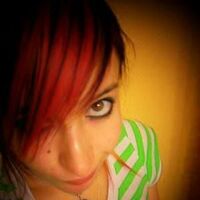
What a crazy world this is we live in, All born to lead a life unknown, I have been the outcast, I have looked inside, I haven't found the answer, Just a life to which I abide. We grow each day, Each hour, Each minute, I am present, I am here, I am as I come, And I know what I fear. To tell you all my truths, Would take me a partial lifetime, So let me just speak this truth to you Much simpler than enlightening. I am an energy, I am a friend, I am a mother, Until the end. I am a daughter, I am troubled, I am kind, I am lost Sometimes I falter, I am strong And I am free. I am an unusual being But in the end I am me.

Hi! My name is Chelsi, I am a mom before anything. I am rediscovering my long lost love for poetry. I have never shared anything I’ve written publicly because quite frankly I do it for me and nobody else. I don’t even know if it’s good, but it makes me feel good. This is completely out of my comfort zone. I primarily made this because I would like a place to save all my old poems from notebooks dating back to high school days. I would just like to have them all in one place. This first one I started last night and finished today. It was my first (maybe second) in a decade or better. It wasn’t planned by any means. Words randomly started jumbling together in my head late last night so I ran with it. Everything flowed from within a place I had not been in touch with for a long time. I didn’t know that place still existed within me to be honest. Hopefully this was the first of more to come. Please keep in mind I’m not trying to turn this into a living haha! I’m not college educated, haven’t taken any writing courses or anything. This is strictly more of a hobby or an emotional outlet for me. :)


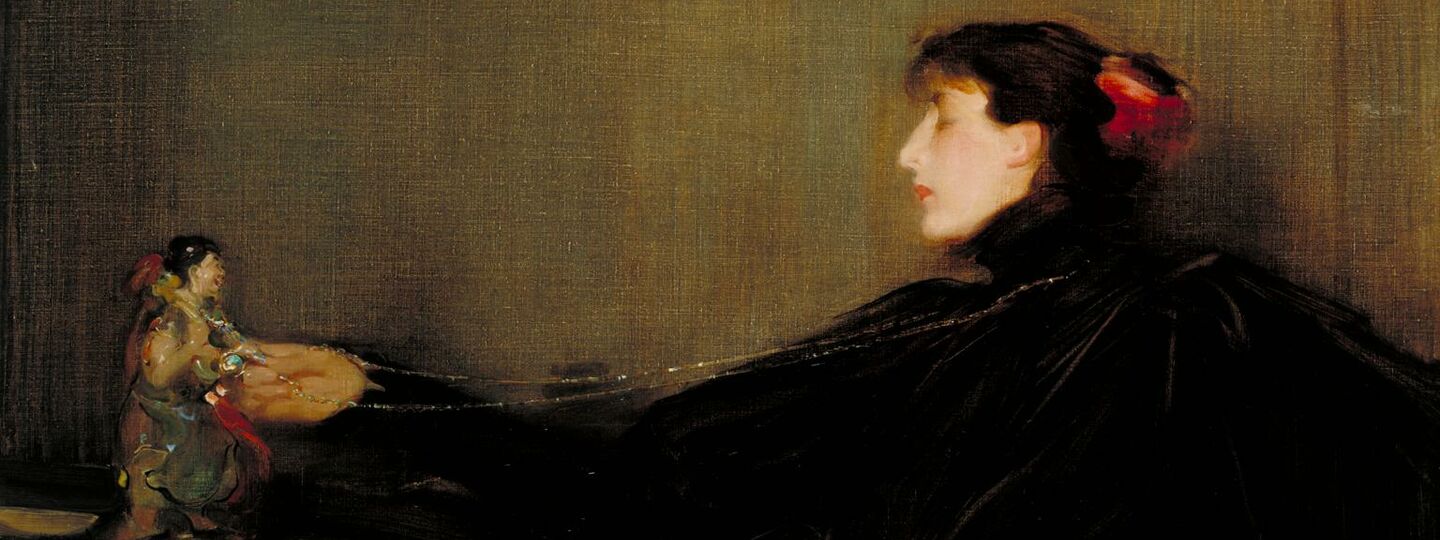
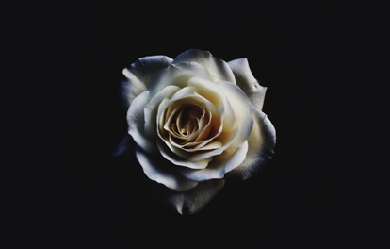
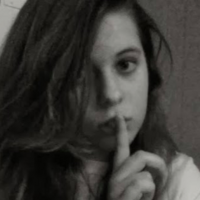

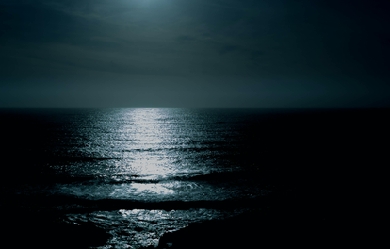


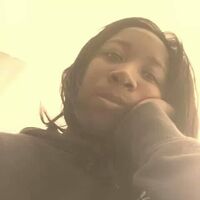
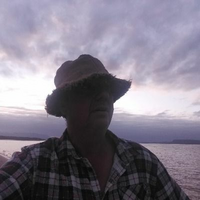

.jpg)
